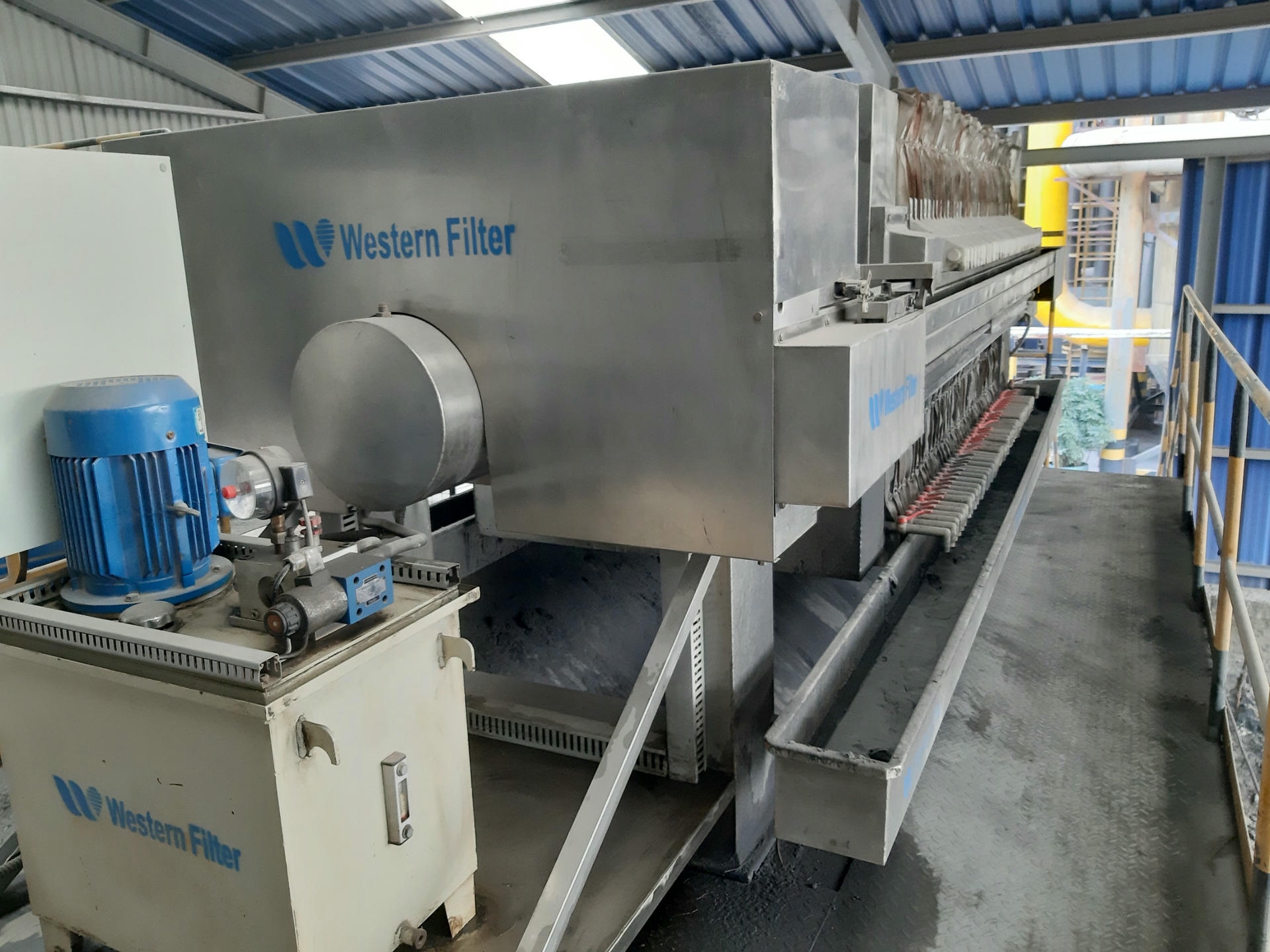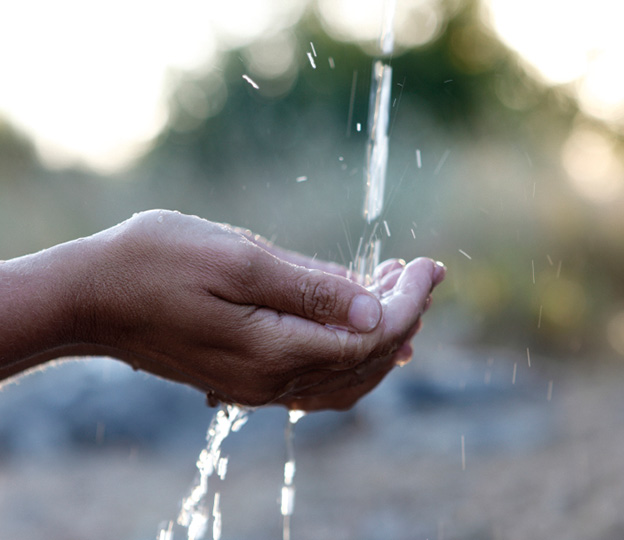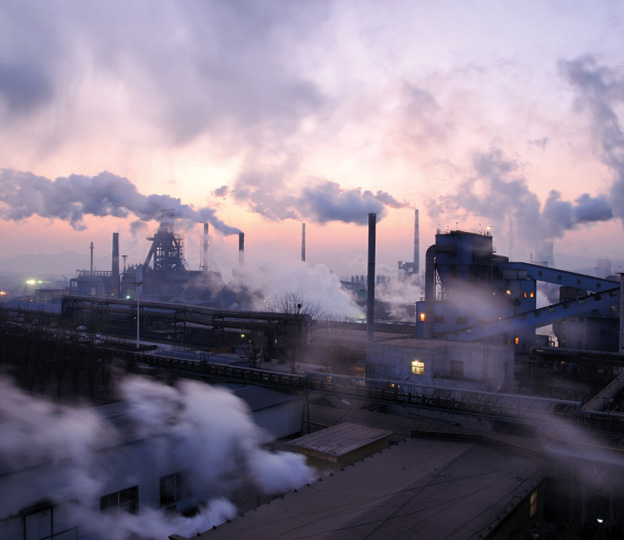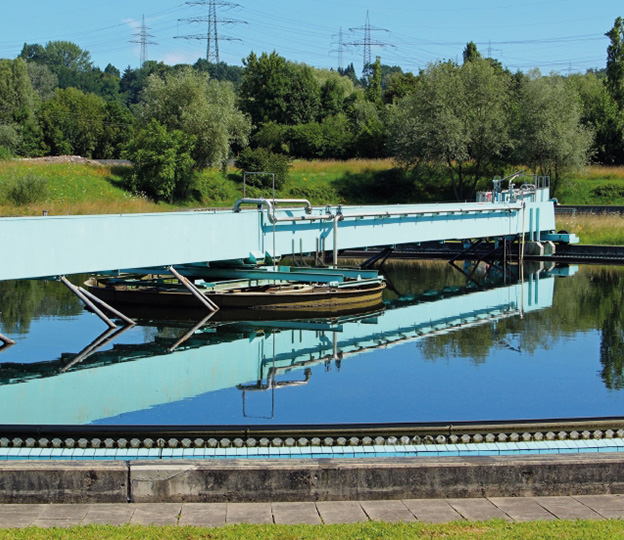APPLICATION OF FILTER PRESS IN THE WATER INDUSTRY
Due to the high requirements for sludge dryness after pressing as well as operational durability, the high-performance membrane frame slurry press is preferred as a mechanical solid/liquid separator in the field of water and wastewater treatment. The sludge cake formed after filtration must have the highest possible dry matter (DM content) content due, to be disposed of.
This reduces processing costs to a minimum. Based on many years of research on water treatment processes, WESTERN FILTER has the important know-how and perfect strategy from hundreds of plate presses distributed and installed in the environmental field to be able to provide complete solutions and turnkey service in the field of solid/liquid separation mechanics for every customer requirement.
WESTERN FILTER offers a wide range of filter press technologies – tailored to specific needs. This includes the areas of municipal and industrial wastewater treatment, drinking water, groundwater and organic waste treatment as well as sludge recycling.
Our high performance membrane filter presses are the optimal solution for your application based on process changes in filter plate and filter cloth technology. They are specifically designed for the best possible filtration results, high filtration rates, low energy costs and a high degree of dehydration. Efficient solid/liquid separation is of great importance not only economically but also in terms of sustainability.
Accordingly, our goal with our products is to provide a comprehensive solution for environmental protection. Our mission is always to convert wastewater into pure water and sludge into resources. In this way, we leave the next generation with clean water and a healthy environment.
SOME APPLICATIONS OF FILTER PRESS FOR THE WATER INDUSTRY
In the drinking water treatment industry, for the purpose of changing water quality, water comes from various sources, such as reservoirs, surface water, dam water, etc. taken to the water treatment plant and treated. However, depending on the source of the untreated water for filtration (content of organic particles and insoluble particles).
An essential process step to treat water and improve cleaning efficiency is flocculation in the treatment plant. Depending on the main requirements untreated water is conditioned with suitable flocculant (e.g. polymers, iron(III) chloride or aluminum sulfate) and additives.
Small amounts of solid impurities are precipitated and the settling rate of the flocs is increased. Subsequent filtration will reduce turbidity as well as iron, manganese or arsenic from the water.
DRINKING WATER TREATMENT IS A PROBLEM OF TRUST
In terms of the efficiency of mechanical water filtration compared to many other systems, the filter press is mainly used as a sludge treatment device. WESTERN FILTER filter presses offer high filtration rates and best filtration results as well as outstanding dehydration results (independent of conditioning chemicals) due to their typical design features and filter plates proprietary tested.
For fast cycle and high capacity, filter press is available in fully automatic design. Experience shows that membrane filter presses with large filtration area, sizes from 1200x1200mm to 2000x2000mm, combined with automatic sludge cake discharging aid are the best for treating domestic wastewater sludge.
Whether in people’s daily lives or in business – Water plays a decisive role. New aspects of environmental protection are increasingly tightened, legal documents related to the discharge of wastewater according to regulations are increasingly innovative and have severely punished.
For commercial and industrial companies, to minimize toxicity and waste water to a minimum. Solid-liquid separation processes must be truly efficient. To meet these increasingly stringent legal requirements. And increasingly scarce landfill sites for post-treatment solids lead to high financial costs.
This increases the need for process wastewater and wastewater recycling as well as the need to squeeze out the best possible sludge. In terms of their efficiency compared to all other dewatering or drying systems, filter presses are mainly used as process components in the wastewater treatment field.They can be used to remove industrial/process wastewater such as sewage sludge, metal hydroxide sludge, crushed rock powder sludge, drilling water, latex wastewater, etc., For example:
- Steelmaking
- Galvanizing Company
- Leather factory
- Paper factory
- Stone processing factory
- Building materials and wood processing industry
- Exhaust air cleaning plant
- Desulfurization Plant
After proper pretreatment, the sludge cake can be pressed easily and save chemicals and then disposed of. If necessary, purified wastewater can be returned to the process.
The WESTERN FILTER slurry press offers high filtration rates and the best possible sludge dryness as well as outstanding dehydration results (independent of conditioning with polymeric coagulants or lime/iron alum) with their typical design features. Wastewater and filter cloth have been tested for different applications.
Filter press are available with a fully automatic design for fast press cycle times and high capacity. A typical option here is an automatic sludge separator for quick discharge of the sludge cake. These pre-designed process parameters are particularly important according to economic needs.
As a result, our products contribute to increased filtration productivity with their sturdy machine structure, robust architecture and the high quality already well known in the market.
Read our detailed research articles on the sludge filtration process in cooperation with the research & development department and domestic / foreign filter press companies to better understand the technology.
Waste recycling is a major activity in waste treatment, especially in big cities such as Ho Chi Minh City, Hanoi, Binh Duong,… Waste treatment makes a decisive contribution to protection. resources. For example, put recyclable metals back into the recycling materials cycle by using highly mineral waste as building materials.
Waste treatment also makes an important contribution to the generation of electricity and heat in the thermal waste treatment process. In this situation, the filter press is used as the solid/liquid separator. For example, in physico-chemical treatment plants for hazardous waste treatment, in waste incineration plants, (coal) power plants for exhaust air cleaning and exhaust air desulfurization.
HAZARDOUS WASTE TREATMENT
In hazardous waste treatment, the treatment of specific wastes in closed reaction containers is basically done by settling, neutralization, reduction, oxidation or precipitation. Organic liquid wastes, inorganic acids and alkalis as well as other concentrates (e.g. dilute sludge, landfill leachate or dilute acids from combined heat and power plants) are neutralized and further processed depending on their composition.
During the conversion process, contaminants such as heavy metals, chromates or cyanides are removed or immobilized and separated. The resulting sludge is then sent to a filter press for filtration, dewatering and proper treatment with the aim of creating a solids-free filtrate and maximum dryness.
In a next step, the filtrate contaminated with organics generated by the solid-liquid filtration is purified through activated carbon. The treated wastewater is then discharged into the sewer system without contamination according to the respective limit values. Sludge cakes are temporarily stored and reused as loose material, IBC containers or drums.
EXHAUST AIR CLEANING/ FLY-ASH TREATMENT
For instance, solid residues from waste incineration plants include ash and slag from waste incineration, as well as waste from exhaust air cleaning, wastewater treatment, and dust filtration. The exhaust air generated during the combustion of residual waste is enriched with a variety of particulate and gaseous pollutants. Exhaust air cleaning as a wet process takes place in a multi-stage washing process.
This is a treatment stage to remove pollutants such as HCl, SO2, NOx, HF and heavy metals including Hg and organic compounds (dioxins and furans), for the purpose of minimizing environmental pollution. In a process water treatment plant, the wash solution from the wet filter equipment is treated by alkalization, neutralization, precipitation, coagulation and settling depending on the process.
The sludge generated in the individual processes is separated from the solids by a filter press for the purpose of producing a solids-free filtrate. Depending on the application, the sludge cake is dehydrated to a maximum solids content to comply with the classification values of the landfill. Then disposed of at appropriate landfills. In factories with residual emissions, the resulting filtrate is saturated, conditioned and returned to the treatment cycle.
WESTERN FILTER GUARANTEE THE SUCCESSFUL IMPLEMENTATION OF YOUR PROJECT
Due to the high dewatering requirements, membrane filter presses with high configuration options are preferred, e.g. for exhaust air cleaning and hazardous waste treatment. Membrane filter press offer high filtration rates and the best possible filtration results as well as outstanding dehydration results with their typical design features proven for different applications.
With fast cycle and high capacity, the membrane filter press is designed to be fully automatic. Efficiently designed process parameters, especially from an economic point of view, are of great importance. In addition, our products contribute to increased filtration productivity thanks to their sturdy, durable construction and high quality, well known in the market.
PRACTICAL EXPERIENCE
Over many years of establishment and development, WESTERN FILTER is proud to be one of the pioneers in the Vietnamese market in research and production technology of filtrer presses.
Some of our pictures of the filter press for the fly ash treatment industry that we have provided:

updating…







